As a BetterHelp affiliate, we receive compensation from BetterHelp if you purchase products or services through the links provided
Are you feeling the weight of the world on your shoulders? It seems like everyone’s searching for a bit of peace amidst the hustle and bustle. If you’re in the same boat, why not consider a cup of tea for a change? More than just a comforting ritual, it might just be the soothing ally you need against anxiety.
We’re going to take a closer look at the world of herbal teas, exploring the effectiveness of tea for anxiety, spotlighting the top teas that are famous for their stress-relieving superpowers, and giving you some pointers on how to weave this ancient remedy into your modern life for a little more serenity. So, let’s talk tea and tranquility.
Understanding Anxiety
 What Is Anxiety?
What Is Anxiety?
Before we explore the potential benefits of tea for anxiety relief, let’s begin by understanding what anxiety is and how it affects our well-being.
Anxiety and its impact on mental and physical well-being.
Anxiety is a common mental health condition characterized by excessive worry, fear, and uneasiness. It can manifest in various forms, including generalized anxiety disorder (GAD), social anxiety, and panic disorder. Anxiety not only takes a toll on mental health but can also have adverse effects on physical well-being, leading to symptoms such as rapid heartbeat, muscle tension, and digestive issues.
The prevalence of anxiety and its symptoms.
Anxiety is more common than you might think, affecting millions of people worldwide. Its symptoms can include restlessness, irritability, difficulty concentrating, and insomnia, among others.
 The Role of Stress
The Role of Stress
The connection between stress and anxiety.
Stress and anxiety often go hand in hand. Stressors, whether they are related to work, personal life, or external factors, can trigger or exacerbate anxiety. Learning to manage anxiety and stress well is a critical part of anxiety relief.
The adverse effects of chronic stress on mental health.
Chronic stress can lead to a range of mental health issues, including anxiety and depression symptoms. It’s essential to find effective ways to cope with stress in our daily lives.
 Tea as a Natural Remedy
Tea as a Natural Remedy
Teas for anxiety have remained popular throughout time.
The Soothing Properties of Tea
Now, let’s explore how tea can be a natural remedy to soothe anxiety and promote relaxation.
How different types of tea can promote relaxation and reduce anxiety.
Various types of herbal tea blends have been known for their calming effects. These herbal teas can promote relaxation and reduce anxiety, making them a valuable addition to your daily routine.
The science behind tea’s calming effects, including compounds like L-theanine.
One of the compounds responsible for tea’s anti-anxiety effects is L-theanine. This amino acid is found in tea leaves and is known for its ability to induce relaxation without drowsiness. It can help to reduce stress and ease anxiety by promoting the production of neurotransmitters that create a sense of calm and well-being.
Types of Tea for Anxiety
Various tea types (e.g., chamomile, green tea, lavender) are known for their anxiety-alleviating properties.
There are several types of tea with anxiety-alleviating properties. Chamomile tea is renowned for its calming and sleep-inducing effects, while green tea contains L-theanine and provides a gentle, sustained energy lift. Lavender tea offers a delightful floral aroma and relaxation benefits.

The benefits and flavors of each type and their ideal times for consumption.
Chamomile tea is a caffeine-free option with a light, floral taste, best consumed in the evening. Green tea has a subtle, earthy flavor and is ideal for mornings. Lavender tea offers a fragrant, soothing taste and is perfect for winding down in the evening.
Incorporating Tea into Your Routine
Brewing the Perfect Cup
To make the most of tea’s anxiety-reducing potential, it’s essential to know how to brew the perfect cup.
Brewing tea for maximum relaxation benefits
Proper brewing techniques can enhance the flavors and health benefits of tea. Ensure you use the right water temperature, steeping time, and tea-to-water ratio.
Tips on selecting high-quality tea and suitable tea accessories.
Selecting high-quality tea is essential for a more enjoyable and practical experience. Invest in reputable tea brands and explore accessories like teapots, infusers, and teacups.
Tea Time Rituals
To further enhance the effectiveness of tea in reducing anxiety, consider incorporating some calming tea rituals into your tea-drinking routine.
Rituals and practices to enhance the effectiveness of tea in reducing anxiety.
Create a tranquil atmosphere while drinking tea by setting aside a dedicated tea time away from distractions. Engage in relaxation practices such as deep breathing, meditation, or gentle stretching while enjoying your tea.
The importance of mindfulness and stress-reduction techniques during tea consumption.
Practicing mindfulness during tea consumption can help you fully experience the calming effects of tea. Engage all your senses by savoring the aroma, taste, and texture of the tea. This mindful approach can be a powerful tool for stress reduction and reduced anxiety, too.
 When Can Tea Be Effective for Anxiety?
When Can Tea Be Effective for Anxiety?
Tea can be a comforting ally in your battle against anxiety, suitable for those moments when you need a gentle nudge back to calmness. Here’s when reaching for a cup can be particularly effective:
- During Your Downtime: Sipping tea can become a relaxing ritual during your breaks. It’s a natural pause that signals your body to unwind.
- As Part of a Morning Routine: Starting your day with a warm cup can set a peaceful tone for the hours ahead.
- When Facing Stress Triggers: If you know you’re about to enter a stressful situation, preemptively enjoying a cup of tea might help to dampen the anxiety response.
- Before Bedtime: A calming, non-caffeinated tea can be part of your wind-down routine, helping to prepare your mind and body for sleep.
- During Work Breaks: Step away from the screen, brew a cup, and take a few minutes to relax. This can help reduce work-related anxiety and refresh your focus.
Remember, while tea can be beneficial, it’s not a cure-all. It works best when integrated into a balanced approach to mental health that includes proper diet, exercise, sleep, and, if necessary, therapy. If you find your anxiety is more than just the occasional worry, it might be time to seek additional support.
 Recognizing When It’s Time for Therapy
Recognizing When It’s Time for Therapy
While a warm cup of herbal tea can do wonders for the occasional stress, it’s important to recognize when professional help might be needed. Here’s how to tell if it’s time to consider therapy for anxiety:
- Persistent Worry: If you are constantly anxious about everything from big events to the minutest details, it’s tough to control these worries.
- Physical Symptoms: Anxiety isn’t just in your head. It can manifest physically through things like insomnia, stomachaches, or a racing heart.
- Interference with Daily Life: When anxiety starts to mess with your job, relationships, or hobbies, it’s a signal that you might need a helping hand.
- Overwhelming Fear: If you’re facing intense fear that feels disproportionate to the situation, it could be a sign of an anxiety disorder.
- Avoidance Behavior: If you’re steering clear of places or situations to avoid anxious feelings, this avoidance can significantly impact your life quality.
If these signs sound familiar, it might be time to contact a mental health professional. Tea for anxiety is a soothing supplement to a balanced lifestyle, but when the stress gets too heavy, therapy can provide the tools you need to manage it effectively. Remember, seeking help is a sign of strength, not weakness.
 Setting Goals for Therapy
Setting Goals for Therapy
Setting goals and recognizing progress are key to personal growth and better mental health. Here’s how you can tackle both with confidence:
- Be Specific with Your Goals: Vague ambitions like “get healthier” are more challenging to track than “walk 30 minutes daily.” Specific goals set a clear path to follow.
- Break It Down: Large goals can be overwhelming. Break them into smaller, manageable tasks that you can tackle individually.
- Set Measurable Milestones: Decide how you’ll measure progress. If your goal is to reduce anxiety, a milestone could be the number of days you feel calm or the number of times you’ve successfully managed a stressful situation.
- Celebrate Small Wins: Every step forward is worth celebrating. Recognizing even the smallest successes can boost your motivation and make the journey enjoyable.
- Be Patient and Persistent: Progress isn’t always linear. There will be ups and downs, but persistence is key. Keep at it, and don’t be too hard on yourself if things don’t go as planned.
- Adjust as Needed: If you hit a snag, it’s perfectly okay to reassess and adjust your goals. Flexibility can be a superpower.
- Seek Feedback: Sometimes, it’s hard to see the progress we’re making. Getting an outside perspective can help highlight improvements you’ve overlooked.
Remember, setting goals is not about perfection; it’s about improvement. Recognizing that you’re moving forward, no matter the pace, is a crucial part of maintaining your mental health and overall well-being.
Conclusion
In conclusion, tea is a natural remedy that can offer significant relief from anxiety and stress. By understanding the soothing properties of different tea types, incorporating mindful tea-drinking rituals, and taking time to relax, you can harness the calming effects of tea and promote better mental well-being.

While tea is not a substitute for professional mental health care, it can be a valuable tool for anxiety management. Consider adding a soothing cup of tea to your daily routine and enjoy the relaxation it brings.
Frequently Asked Questions
How does tea help with anxiety relief?
Tea can help with anxiety and stress relief through several mechanisms. Many types of tea, such as chamomile, green tea, and even lavender teas, contain compounds that promote relaxation. One key compound is L-theanine, an amino acid found in tea leaves, known for its ability to induce a sense of calm without causing drowsiness. L-theanine promotes the production of neurotransmitters that reduce anxiety and stress. Additionally, the act of brewing and sipping tea itself can be a mindfulness practice that calms the mind and reduces stress.
What are the best tea types for reducing anxiety?
The best herbal and decaffeinated teas for reducing anxiety include chamomile, green tea, and lavender.
Chamomile tea: Renowned for its calming and soothing anxiety, chamomile tea is a caffeine-free option that can help relieve anxiety and promote relaxation. Its light, floral taste makes it an excellent choice for evening consumption.
Peppermint tea: Peppermint tea contains L-theanine, an amino acid known for its ability to both improve sleep quality and induce relaxation without causing drowsiness. This compound promotes a sense of calm and well-being, making Peppermint tea an ideal choice for reducing anxiety.
Lavender tea: Lavender tea offers a fragrant and soothing taste that can help narrow the nervous system and reduce anxiety symptoms. The pleasant aroma and calming effects of lavender make it a great choice for relaxation, particularly in the evening.
How much tea should I drink to help with anxiety?
Moderation is key. One to three cups a day can be soothing without overdoing it, especially if you’re sensitive to any ingredients.
Can tea really help with anxiety?
Many people find herbal tea to be relaxing. While it’s not a medical treatment, preparing and sipping tea can be meditative and comforting.
Are there any side effects to using tea for anxiety?
Most herbal teas are safe, but some can interact with medications or have side effects if consumed in large amounts. It’s always a good idea to check with a healthcare provider if you’re unsure.
How quickly can tea help alleviate anxiety?
The calming effect of tea can be felt shortly after drinking, as the warm beverage and the act of sipping slowly can be immediately soothing.
Is it okay to drink tea for anxiety every day?
Yes, as long as you’re choosing non-caffeinated options and not experiencing any adverse effects, daily consumption is generally fine.
Can children drink tea for anxiety?
Some herbal teas can be safe for children in small amounts, but it’s best to consult a pediatrician first.
Will any tea work for anxiety?
Not all teas have the same effect. Caffeinated teas might increase anxiety in some people. Stick to herbal teas known for their calming properties.
Always remember that while herbal teas can support your mental well-being, they are not a substitute for professional medical advice or treatment. If you’re experiencing severe or persistent anxiety, it’s crucial to consult with a healthcare provider.
- Left Arm Pain and Anxiety: Understanding the Relationship - November 23, 2023
- Anxiety Paralysis: Coping with Overwhelming Stress - November 23, 2023
- Anxious vs. Nervous: Differentiating Emotions and Responses - November 15, 2023
This site contains affiliate links to products. We will receive a commission for purchases made through these links.

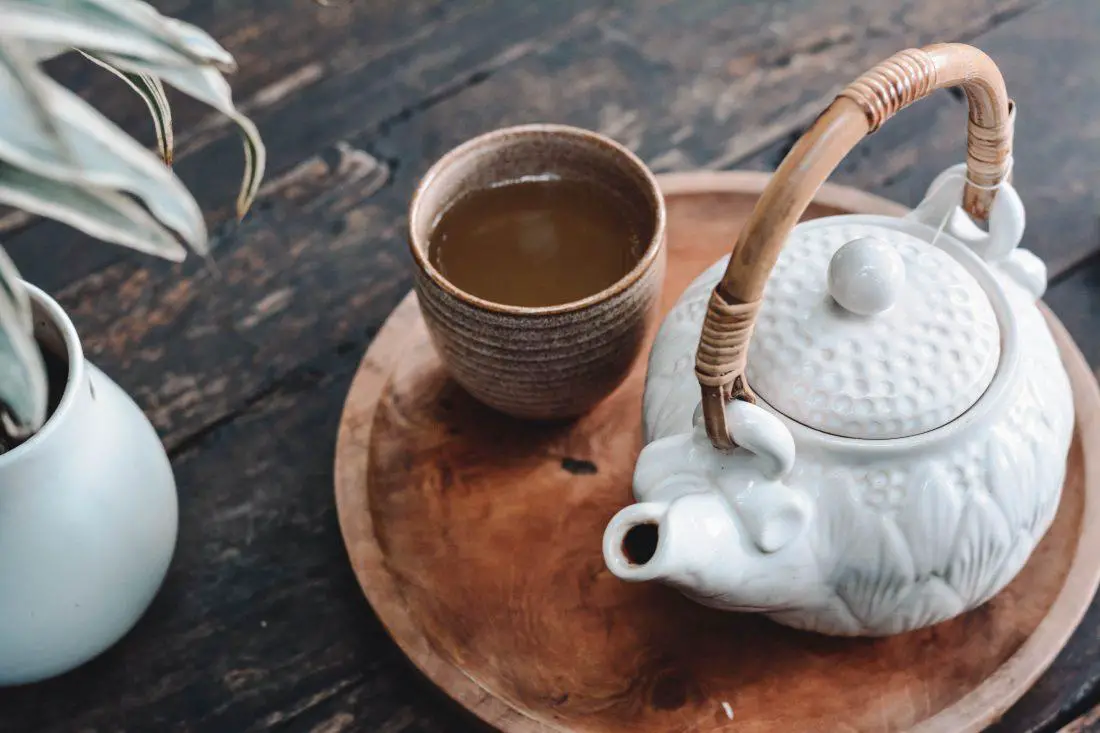
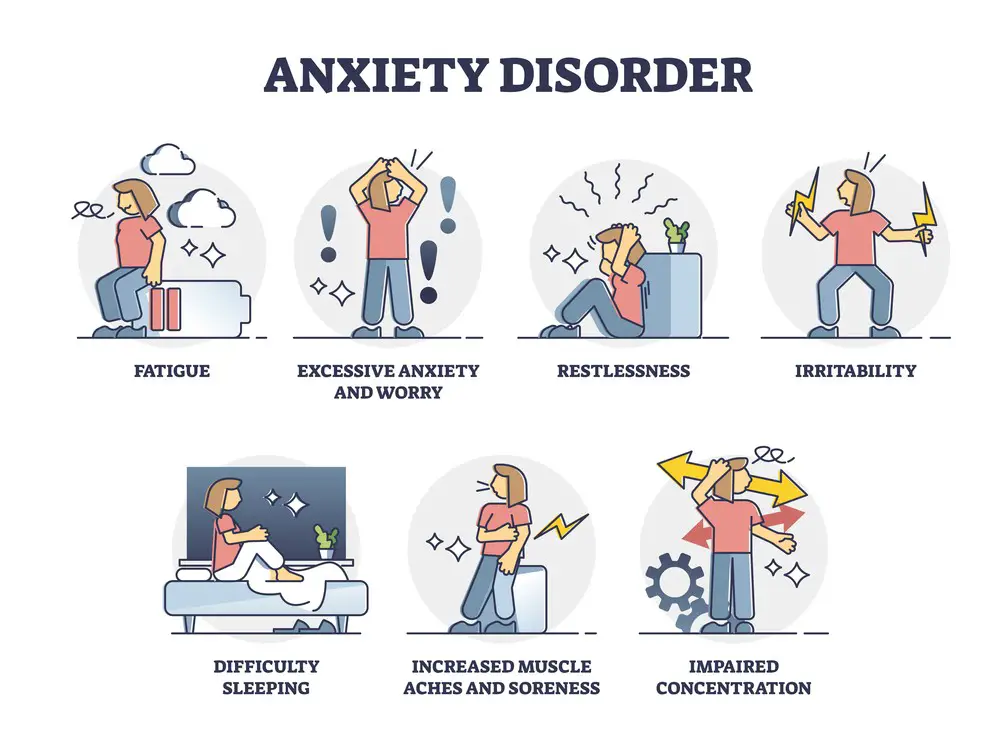 What Is Anxiety?
What Is Anxiety?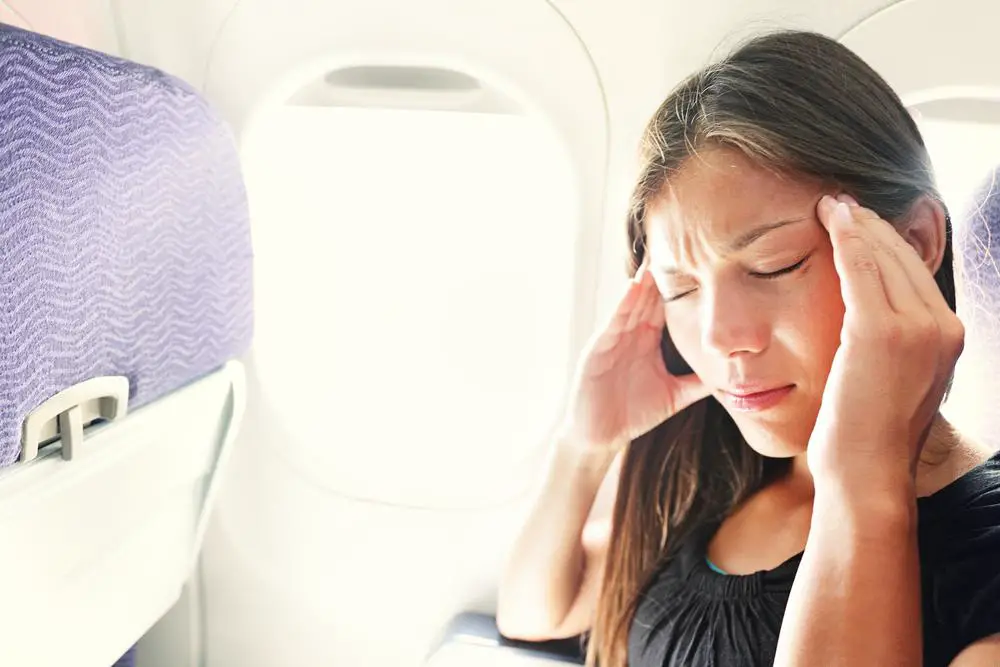 The Role of Stress
The Role of Stress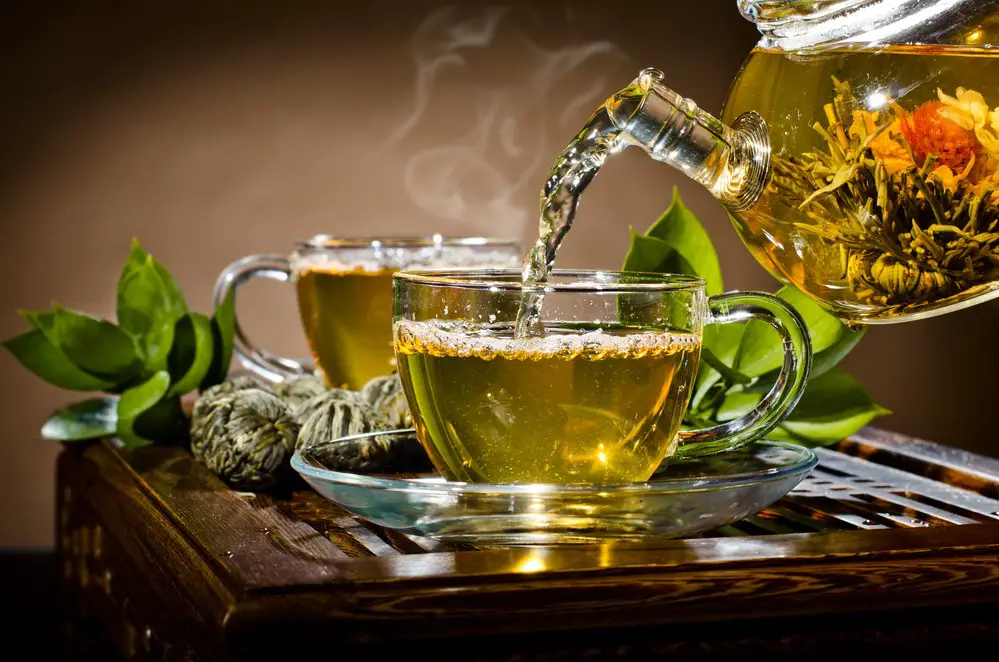 Tea as a Natural Remedy
Tea as a Natural Remedy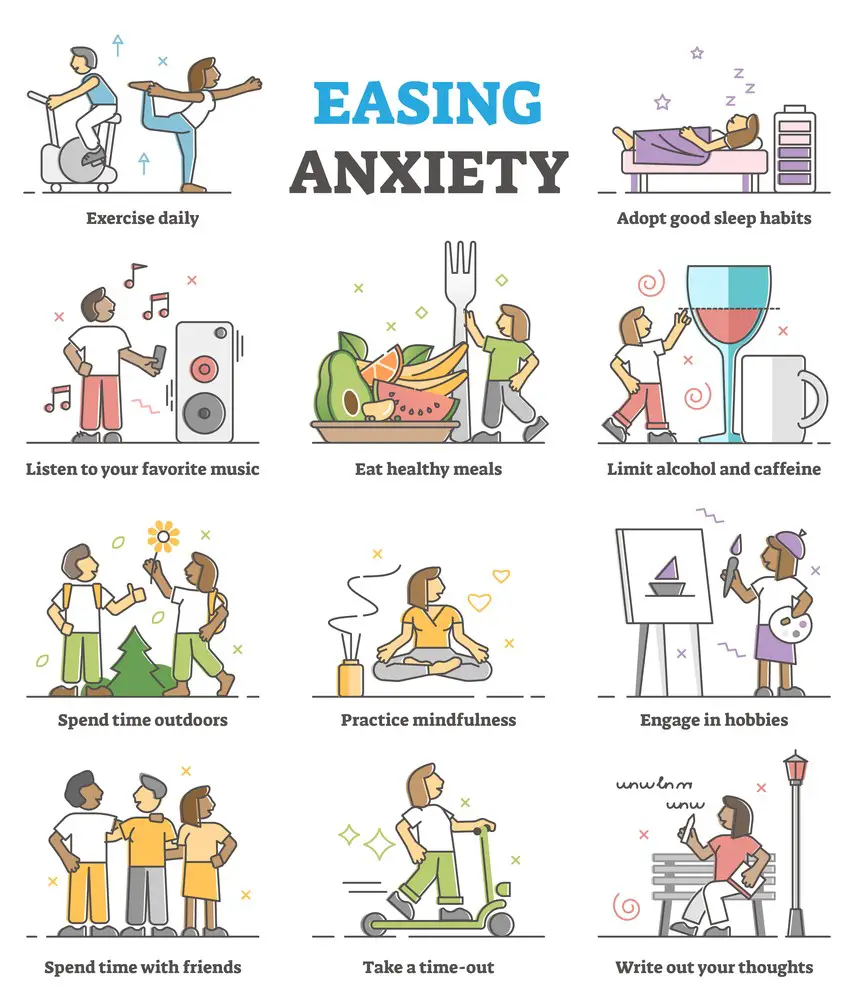 When Can Tea Be Effective for Anxiety?
When Can Tea Be Effective for Anxiety? Recognizing When It’s Time for Therapy
Recognizing When It’s Time for Therapy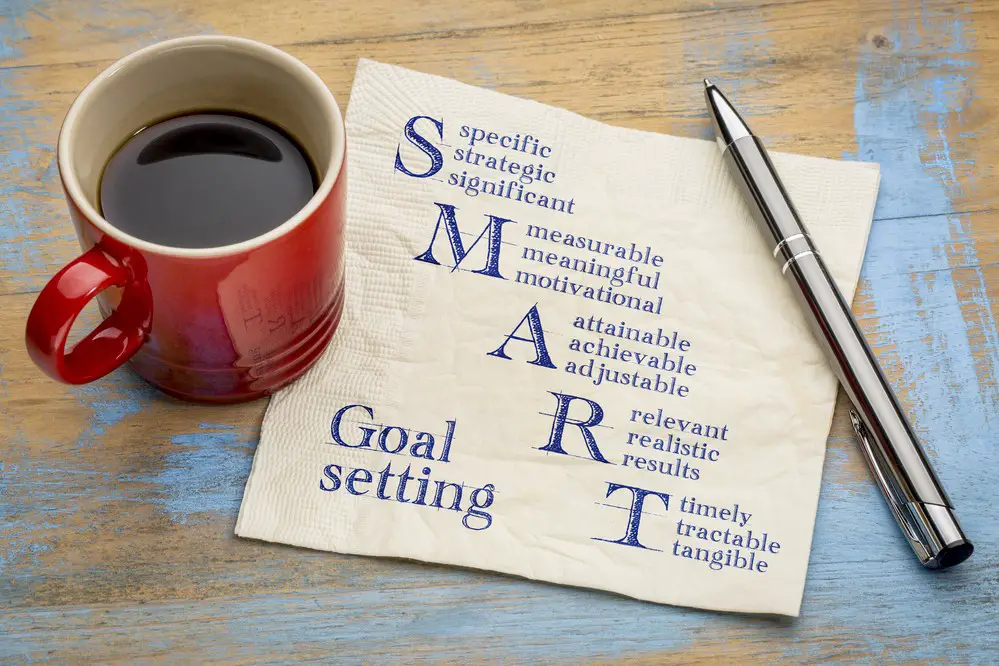 Setting Goals for Therapy
Setting Goals for Therapy
